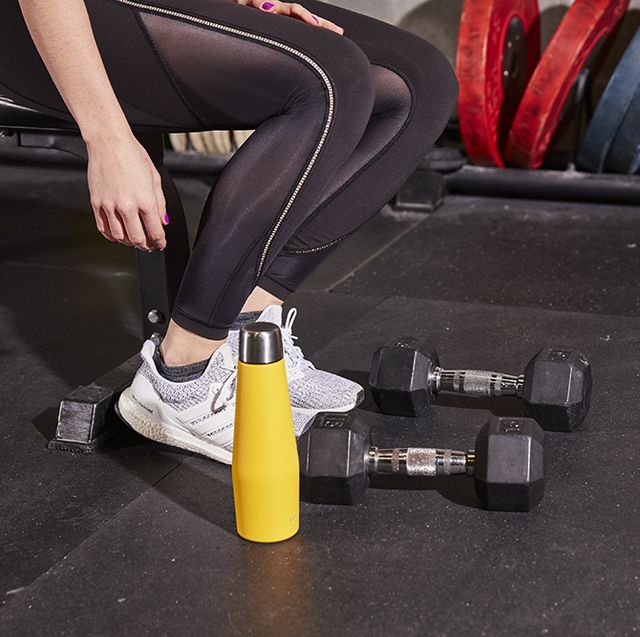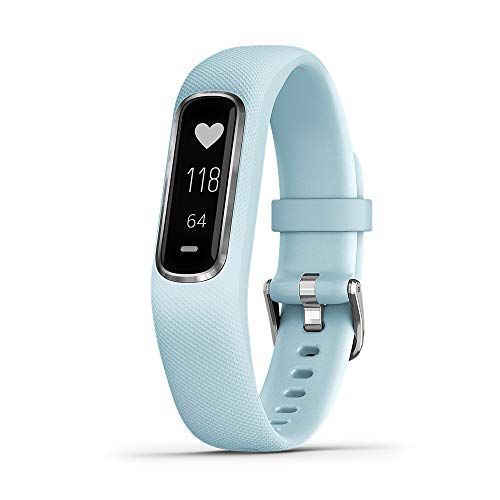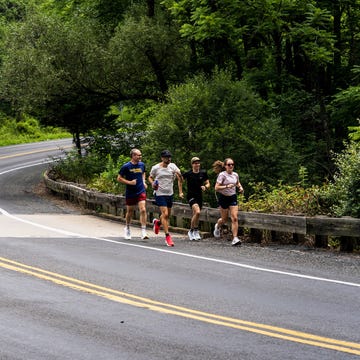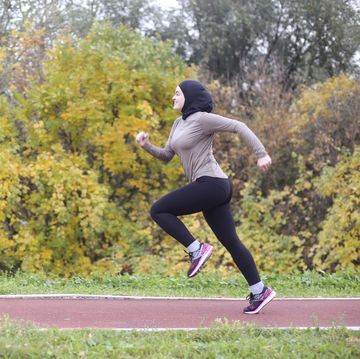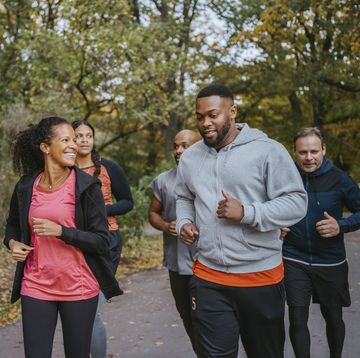- According to a recent study in Preventive Medicine Reports, strength training can help improve your quality of sleep.
- This is because strength training creates a molecule called adenosine, which tends to cause drowsiness.
- Additionally, exercise in general tends to help reduce symptoms of depression and anxiety, which can make it easier to fall—and stay—asleep.
It’s all too easy easy to get stuck in a cycle of not being able to fall asleep at night—or struggling to stay asleep—and then feeling groggy the next morning. In fact, 1 in 4 Americans experience insomnia each year and 70 million Americans suffer from some sort of sleep disorder. So, if you’re struggling with sleep issues, you’re definitely not alone.
However, the takeaway from a new study in Preventive Medicine Reports says that adding some strength training into your routine during the day can actually help improve your quality of sleep.
Want to become a stronger, healthier runner? Join Runner’s World+ today!
Researchers looked at over 23,000 adults in Germany, collecting data on their weekly frequency of resistance exercise and sleep quality. They found that any muscle-strengthening done during a typical week was associated with a reduced prevalence of sleep rated as “poor” or “very poor.” These associations remained after adjusting for other factors like high body mass index, chronic disease, age, and smoking.
Also, there was no evidence of a dose-dependent relationship, which means more was not necessarily better. Those who did resistance training just once a week had a similar, favorable association in sleep quality to those who did this type of training more often, even those who strength-trained five times a week.
“There is strong scientific evidence that exercise is associated with better sleep quality, but most of that evidence is based solely on aerobic exercise,” lead study author Jason Bennie, Ph.D., associate professor in physical activity epidemiology at University of Southern Queensland in Australia, told Runner’s World. “Our study was the first to describe the associations between muscle-strengthening exercise and sleep quality, especially among a large population sample.”
One limitation to the study is that the study’s results were based on participants self-reporting the amount of strength training they did, which is much less precise than direct observation.
But even if participants in this research were overestimating, the fact is that resistance training on a regular basis still helps in a breadth of ways, including helping you get more better sleep, according to W. Chris Winter, M.D., president of Charlottesville Neurology and Sleep Medicine, and author of The Sleep Solution.
“Compared to lighter exercise like a leisurely run, strength training tends to create a bigger surge of adenosine,” he told Runner’s World.
Adenosine is a molecule that, when broken down during the digestive process, becomes adenosine triphosphate, or ATP, which is responsible for intercellular energy exchange. When ATP is naturally depleted through activity, it breaks back down into adenosine and at that point, tends to cause drowsiness.
Having a larger amount of adenosine through strength training can streamline this process and create more of a drive to sleep, said Winter.
Other potential explanations, said Bennie, are enhanced glucose and lipid metabolism, reduced high blood pressure, and fewer symptoms of anxiety and depression—which all are likely to be beneficial for sleep quality.
“The bottom line is that exercise impacts sleep, and this study is good reinforcement of that message,” Winter said.
Elizabeth Millard is a freelance writer focusing on health, wellness, fitness, and food.
